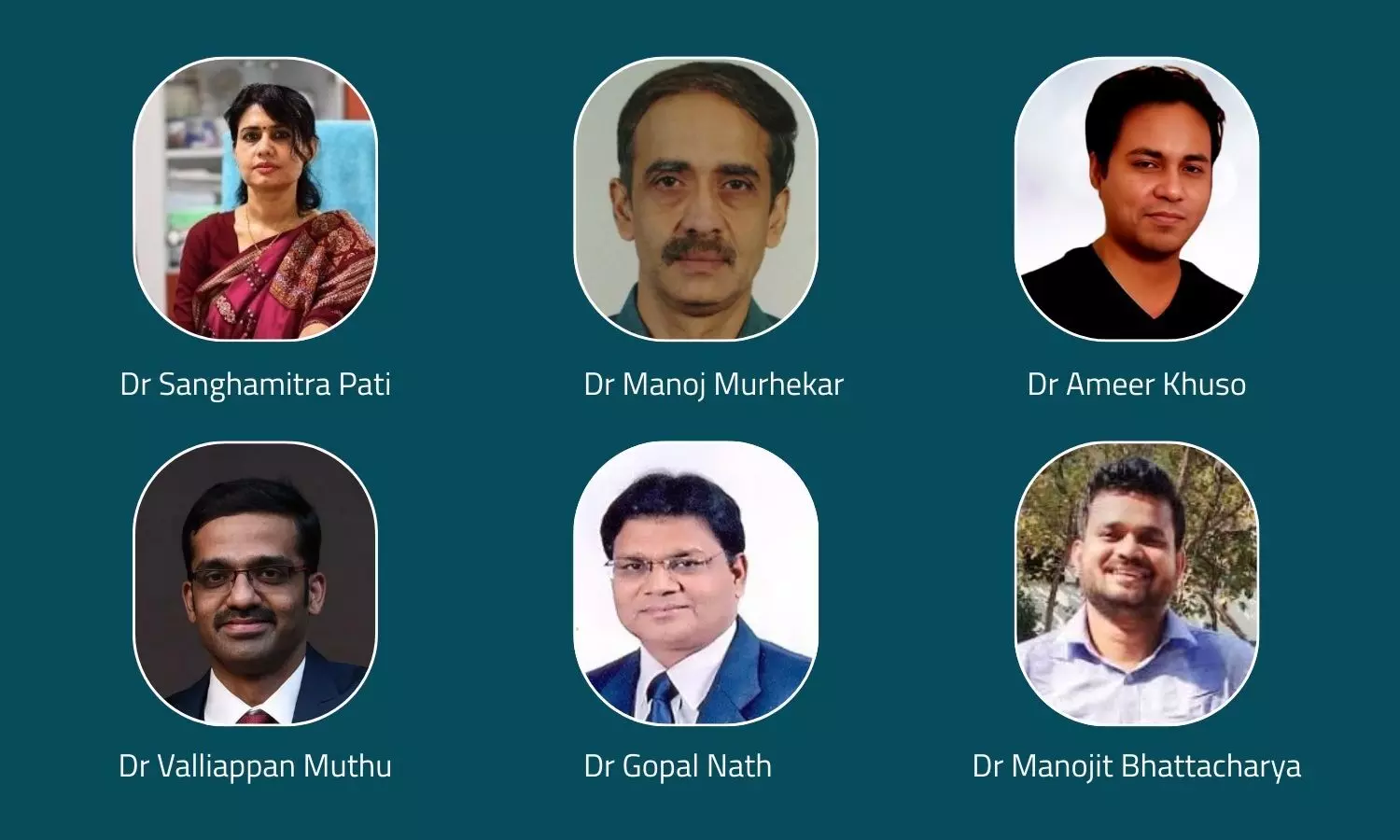8 Indian Microbiologists listed in Stanford University 2025 List of World’s Top 2% Scientists
By Adity Saha
Copyright medicaldialogues

New Delhi: Altogether 8 Indian microbiologists from prestigious health and medical institutes across India have been recognised among the world’s top 2% of scientists in the database curated by Professor John P.A. Ioannidis of Stanford University, in collaboration with the Elsevier Data Repository.This honour acknowledges their pioneering research, clinical achievements, and consistent impact on the field. The database of Stanford University for the year 2025 of top-cited scientists provides standardised information on citations, h-index, co-authorship adjusted h-index, citations to papers in different authorship positions and a composite indicator (c-score). The selection is based on the top 100,000 scientists by c-score (with and without self-citations) or a 2% or above percentile rank in the sub-field. Here are the details of the Indian microbiologists included in Stanford University’s 2025 list:1. Dr Sanghamitra PatiA distinguished physician, laboratory scientist, and public health researcher with over 25 years of experience in the field, Dr Sanghamitra began her academic journey by earning an MBBS in 1992 and an MD in 1998 from MKCG Medical College in Berhampur, Odisha, India. In 2000, she was honoured with the Joint Japan/World Bank Graduate Scholarship (JJ/WBGSP), which allowed her to pursue a Master of Public Health (MPH) at the University of Maastricht in the Netherlands. She further advanced her education and achieved a PhD from the same university in 2023. Dr Pati’s leadership roles have been impactful, particularly in her tenure as the Director of the ICMR-Regional Medical Research Centre in Bhubaneswar, from August 2016 to December 2024. In December 2024, she took on the prestigious & responsible role of Additional Director General at the Indian Council of Medical Research (ICMR) in New Delhi, continuing her significant contributions to public health research and policy.In appreciation of her extraordinary contribution to public health and research, she has been conferred with prestigious awards like Samanta Chandrasekhara Award-2018 by Odisha Bigyan Academy, Devi Award-2020 by the honourable Chief Minister, the President’s Appreciation Award by Indian Medical Association (IMA), Times Power Women Award-2021, Madhubabu Odisha Gourav Samman Award -2023, Cuttack, Biswamukti Rashtriya Swasthyasewa Samman-2023, Odisha Women Award-2023 by Ever Green Forum and Chief Minister’s Award for Excellence in Healthcare Services, Govt. of Odisha -2024 and felicited by Odisha CSR Forum-2024 for her extraordinary contribution to Public Health and Reseach, instrumented in co-developing the first Make in Odisha rapidantigen kit for Covid-19 diagnosis.Dr Pati is a Fellow of the National Academy of Medical Sciences (NAMS), India; the Royal Society of Public Health (FRSPH), UK; and the Union for International Cancer Control (UICC).Dr Pati has been recognised as one of India’s most influential researchers and is a distinguished Lown Scholar at Harvard School of Public Health, Boston, with 25 years of research experience.According to the list, Dr Pati holds a rank of 59,069 in the list based on the composite score excluding self-citations, and 55,140 when all citations are included. By the end of 2024, her h-index, excluding self-citations, stands at 20, with altogether 4,781 citations for 2024 (excluding self-citations).2. Dr Manoj MurhekarA director at the National Institute of Epidemiology, Indian Council of Medical Research, Chennai, Dr Murhekar obtained his MBBS and MD in community medicine from Government Medical College, Nagpur, Maharashtra, India. He is currently the director of the National Institute of Epidemiology (NIE), Chennai, a permanent institute of the Indian Council of Medical Research. His research interests include Infectious disease epidemiology, vaccine-preventable diseases, and disease surveillance and outbreak investigations. He is also the course director for the field epidemiology training program (FETP) that the institute has conducted since 2001.Prior to joining NIE, Dr Murhekar worked at the Regional Medical Research Centre in Port Blair on the Andaman and Nicobar Islands. He was awarded the Major General Saheb Singh Sokhey Award of the Indian Council of Medical Research for his contribution to the field of viral hepatitis among the tribal population of Andaman and Nicobar. Dr Murhekar also worked with the World Health Organisation (WHO) Western Pacific Regional Office as a consultant and professional staff member in Papua New Guinea and the Philippines. He has 140 publications in peer-reviewed journals to his credit. He is the associate editor of the journal BMC Infectious Diseases.As per the list, Dr Murhekar holds a rank of 67,994 in the list based on the composite score excluding self-citations, and 68,093 when all citations are included. By the end of 2024, his h-index, excluding self-citations, stands at 12, with a total of 2,418 citations for 2024 (excluding self-citations).3. Dr….



